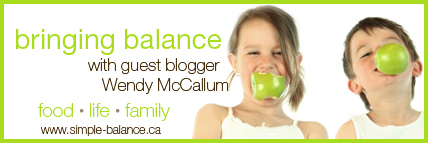Should I look for “hormone & antibiotic-free” meat?
Beef in Canada is normally given growth hormones to fatten it quickly. Animal products already contain naturally- occurring hormones, so you may want to look for beef without additional growth hormones. Chicken and pork cannot be given hormones according to Canadian law, so any label on those meats that indicates “raised without growth hormones” is misleading and pure marketing. However, most industrially-farmed animals are given prophylactic antibiotics (even if not sick, to ensure that if one animal gets sick the whole herd doesn’t go down) so those raised “without antibiotics” whether beef, chicken or pork can suggest a better choice of meat.
Does it matter what my meat eats? Another consideration when it comes to your meat is the animal’s diet: An industrially-raised cow will be fed corn and soy, which is clearly not a cow’s natural diet (grass). Because corn and soy are high in omega 6, beef from cow’s fed that diet is also high in omega 6. Conversely, it’s also lower in omega 3, which comes from dark leafy green plants (grass). Better to choose grass- fed over grain-fed beef as it’s more natural and the quality of the fat is better (we need more omega 3 and less 6 to be healthy, as a general rule). Chickens & turkeys that are pastured will eat a more natural diet that they will scavenge, so I tend to look for that on a label too.
What does “organic” mean? Certified organic animal farmers need to not only feed their animals an organic diet & not use growth hormones, or antibiotics (except when necessary as specific animal is sick) but must also treat their animals humanely. This means there will be lower levels of toxins stored in the fat of those animals (pesticides & other chemicals not present in organic feed).
Should we eat fish, and if so, what type and how often? When it comes to fish, there are some special considerations. While fish is a great source of healthy fat, we have to remember that fat is where all animals store toxins, and even wild fish are exposed to significant toxins through their polluted environment. Certain fish are safer than others: For example, wild salmon and smaller cold-water fish like haddock are better choices than big fish like tuna and swordfish, which tend to have high levels of toxins.
What’s the problem with farmed salmon? Unfortunately, farmed salmon is not a great choice, in my opinion. Farmed salmon are fed an unnatural diet and pumped full of dyes to give them color, antibiotics to prevent the spread of infections and are lower in healthy omega 3 healthy fat than their wild counterparts. They also have higher levels of stored toxins like PCBs. All Atlantic salmon is farmed (unless you catch it yourself in a river!), so if you are buying wild it will be frozen & likely come from either the Pacific Coast of Canada or the US or from Asia. If you eat farmed, keep it to a couple of times a month.
Are eggs all they are cracked up to be? Should I buy “omega 3” eggs, “cage- free”, “free-range” or “organic” eggs? Eggs provide a great source of complete protein and lots of nutrients, but egg marketing is some of the most confusing out there. “Cage-free” just means they are not in tiny cages, but could still be jammed into a small room. It doesn’t mean they see the light of day or eat a natural diet. “Free- range” can mean they have access to a natural grassy area but can also mean they are just allowed outside, period, which can include to an area where they have no ability to forage for food. Eggs from chickens fed a “vegetarian diet” just means they haven’t eaten animal bi-products, which is not a natural diet for chickens, so I guess that’s a good thing. “Certified organic” ensures no animal bi-products or chemically- treated feed is given to the chickens & that they have access to the outside, but not that they have a chance to forage. Your best bet is to buy eggs from “pastured chickens” (organic, if possible). The way to know you are getting those is to ask the farmer who raises those chickens how he farms. The more natural the lifestyle & diet, the better the eggs.
At the end of the day, armed with this information, you have to balance all of this with your priorities, budget, and availability and make the best choices for your family. It’s a very personal choice, and families will always land in different places on this topic. Just like everything else, it’s about finding your informed balance.
Wendy McCallum, LLB, RHN, is passionate about providing busy parents with the tools & support they need to feed their families wholesome food, so everyone can play, learn, and feel better! She is a mother of two terrific nine-year old kids. For information and recipe ideas, visit her website or pick-up her cookbook
